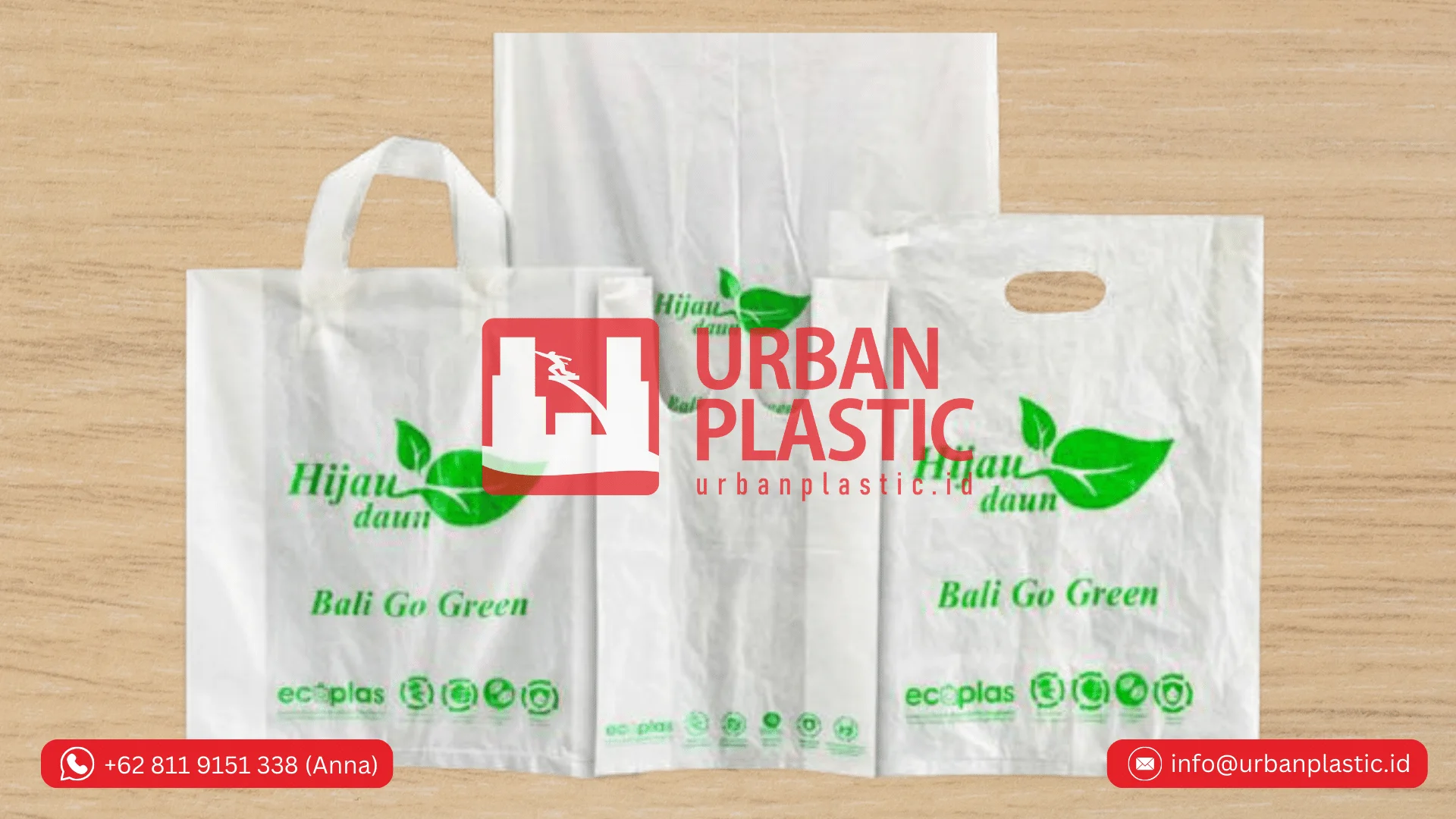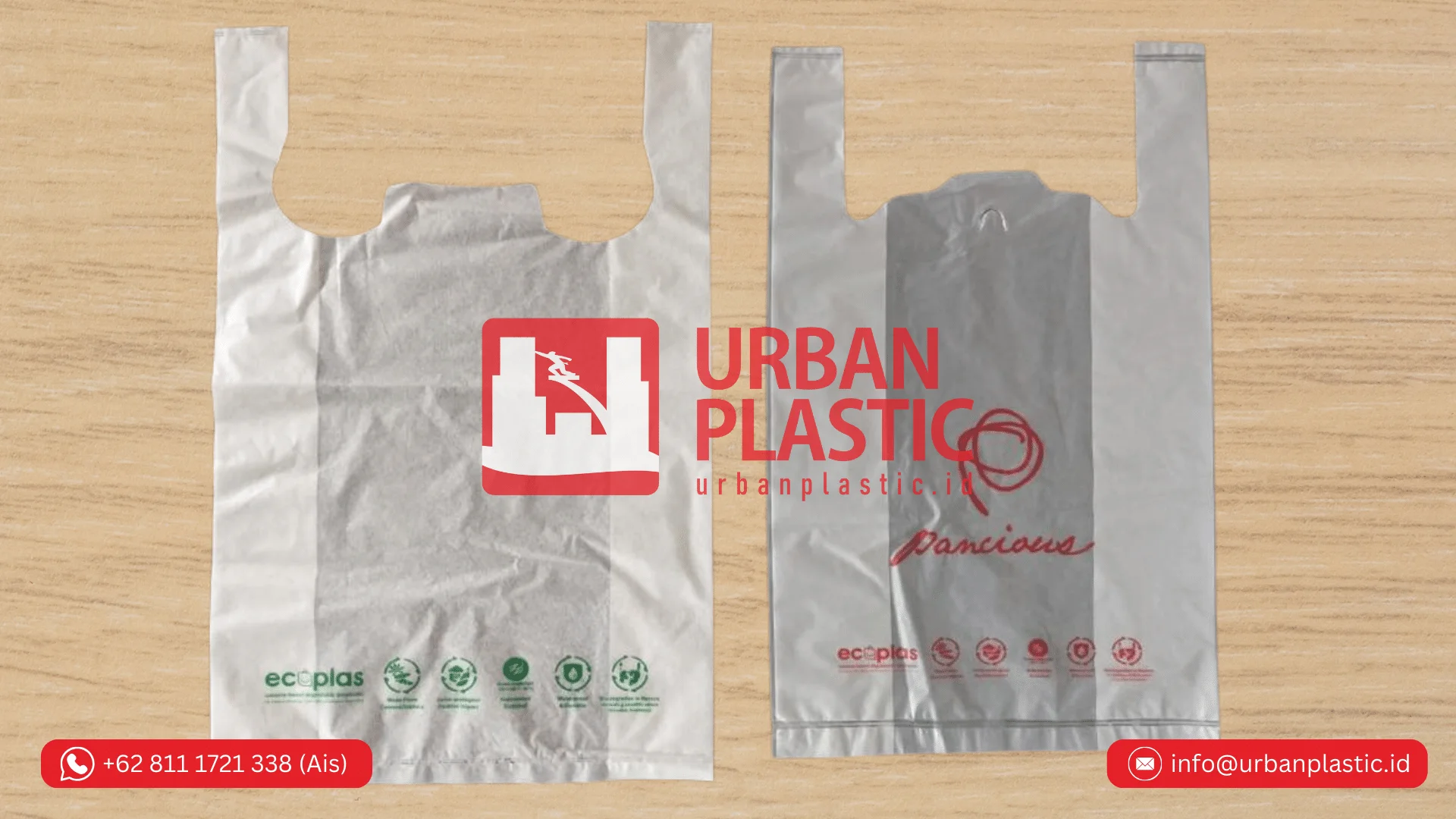In Indonesia’s sustainable packaging industry, a new star is rising – cassava bags. With environmental concerns taking center stage, businesses are seeking innovative alternatives to single-use plastics, and cassava bags have emerged as a promising solution. These bags are not only eco-friendly, but also biodegradable, compostable, and renewable, making them an excellent choice for conscious consumers and businesses alike.
Derived from the cassava root, these bags are not only strong and durable, but also have a significantly lower carbon footprint compared to traditional plastic bags. They also decompose within months, rather than hundreds of years, as is the case with plastic.
As the demand for environmentally friendly packaging continues to grow, companies in Indonesia are embracing cassava bags as a sustainable option. With their versatility and positive environmental impact, these bags are contributing to a brighter and greener future for the packaging industry.
The rise of cassava bags marks a shift towards more sustainable packaging solutions, and as the world becomes more conscious of environmental issues, it’s clear that cassava bags are unlocking the potential for a more sustainable future.


The Environmental Impact of Traditional Plastic Bags
Traditional plastic bags have had a devastating impact on the environment. These bags are made from non-renewable fossil fuels, and their production emits greenhouse gases, contributing to climate change. Moreover, plastic bags are not biodegradable, which means they persist in the environment for hundreds of years, causing pollution and harming wildlife. The improper disposal of plastic bags also leads to clogged drains and waterways, exacerbating the problem of flooding in many areas.
The Rise of Cassava Bags in Indonesia
Amidst growing concerns about the environmental impact of plastic bags, cassava bags have gained traction in Indonesia’s sustainable packaging industry. Derived from the cassava root, these bags offer a sustainable alternative to traditional plastic bags. Cassava is a widely grown crop in Indonesia, making it a readily available and renewable resource for bag production. The rise of cassava bags marks a significant shift towards more eco-friendly packaging solutions in the country.
Cassava bags have gained popularity due to their numerous advantages over traditional plastic bags. Not only are they strong and durable, but they also have a significantly lower carbon footprint. The production of cassava bags requires less energy and emits fewer greenhouse gases compared to the production of plastic bags. Additionally, cassava bags decompose within months, rather than hundreds of years, as is the case with plastic bags. This makes them an attractive option for consumers and businesses looking to reduce their environmental impact.
Advantages of Cassava Bags as Sustainable Packaging
Cassava bags offer several advantages as sustainable packaging solutions. Firstly, they are biodegradable, meaning they break down naturally into organic matter. This makes them an ideal choice for businesses and consumers looking to minimize waste and pollution. Cassava bags are also compostable, which means they can be added to compost piles and will decompose along with other organic materials. This further reduces the environmental impact of these bags and contributes to the circular economy.
In addition to their biodegradability and compostability, cassava bags are renewable. Cassava plants are fast-growing and can be harvested multiple times a year, ensuring a continuous supply of raw materials for bag production. This renewable aspect makes cassava bags a sustainable choice for businesses, as they can reduce their dependence on non-renewable resources.
Furthermore, cassava bags are versatile and can be used in various packaging applications. From grocery shopping to takeaway food containers, these bags offer a practical and eco-friendly alternative to single-use plastics. They can also be customized with branding and design, providing businesses with an opportunity to showcase their commitment to sustainability.
Production Process of Cassava Bags
The production process of cassava bags involves several steps. First, cassava roots are harvested and cleaned to remove any dirt or impurities. The roots are then grated to create a fine pulp. This pulp is mixed with water and fermented to break down the starches present in the cassava. The fermented pulp is then washed to remove excess starch and dried to form a flour-like substance.
Once the cassava flour is obtained, it is mixed with other natural additives, such as vegetable oils and natural resins, to enhance the bag’s strength and durability. The mixture is then molded into the desired shape and size, and the bags are dried and cured. Finally, the cassava bags undergo quality control checks to ensure they meet the required standards before being distributed to businesses and consumers.
Case Studies of Businesses Using Cassava Bags
Several businesses in Indonesia have already embraced cassava bags as a sustainable packaging solution. One such company is a local grocery store chain that has replaced traditional plastic bags with cassava bags at all its outlets. The move has been well-received by customers, who appreciate the store’s commitment to reducing plastic waste. The grocery store has also reported cost savings, as cassava bags are cheaper to produce compared to plastic bags.
Another case study involves a popular fast-food chain that has started using cassava bags for its takeaway packaging. Customers have responded positively to the switch, praising the brand for its eco-friendly approach. The fast-food chain has also noticed an increase in customer loyalty and brand reputation since adopting cassava bags. This case study highlights how businesses can leverage sustainable packaging solutions to enhance their brand image and attract environmentally conscious customers.
Challenges and Limitations of Cassava Bags
Although cassava bags offer numerous benefits, they are not without their challenges and limitations. One of the main challenges is the cost of production. While cassava bags are becoming more affordable, they are still relatively more expensive than traditional plastic bags. This can deter some businesses from making the switch, especially small-scale enterprises with limited budgets. However, as demand for cassava bags increases and economies of scale come into play, the cost is expected to decrease.
Another limitation is the shelf life of cassava bags. Due to their biodegradable and compostable nature, these bags have a limited shelf life compared to plastic bags. Businesses need to ensure proper storage conditions to maintain the bags’ quality and prevent premature degradation. Additionally, the bags may not be suitable for packaging certain products that require a longer shelf life or protection from moisture.
Government Initiatives and Regulations Supporting Cassava Bags
The Indonesian government has recognized the importance of sustainable packaging solutions and has taken initiatives to support the use of cassava bags. In 2019, the Ministry of Environment and Forestry issued a regulation banning single-use plastics in certain sectors, including the retail and food and beverage industries. This regulation has incentivized businesses to explore alternatives like cassava bags.
The government has also provided financial support and incentives for businesses transitioning to sustainable packaging. Grants and subsidies are available to help offset the initial costs of adopting cassava bags. Furthermore, the government has partnered with industry stakeholders to develop standards and guidelines for cassava bag production, ensuring quality and safety.
Future Prospects of Cassava Bags in the Sustainable Packaging Industry
The future looks promising for cassava bags in the sustainable packaging industry. As environmental awareness continues to grow, more businesses and consumers are seeking alternatives to single-use plastics. The demand for cassava bags is expected to rise, leading to increased production and economies of scale. This, in turn, will drive down the cost of production, making cassava bags a more viable option for businesses of all sizes.
Furthermore, advancements in technology and research are likely to improve the quality and durability of cassava bags. Scientists are exploring ways to enhance the bag’s moisture resistance and shelf life, making them suitable for a wider range of packaging applications. With ongoing innovation and collaboration between the public and private sectors, cassava bags have the potential to become the go-to sustainable packaging solution not only in Indonesia but also globally.
Conclusion: Embracing Cassava Bags for a Greener Future
Cassava bags have emerged as a game-changer in Indonesia’s sustainable packaging industry. Their eco-friendly, biodegradable, and renewable properties make them an attractive alternative to traditional plastic bags. Businesses and consumers alike are recognizing the importance of reducing plastic waste and embracing more sustainable packaging solutions.
As the demand for environmentally friendly packaging continues to grow, cassava bags are unlocking the potential for a greener future. With their versatility, positive environmental impact, and government support, these bags are contributing to a brighter and more sustainable packaging industry in Indonesia and beyond. By embracing cassava bags, businesses can align themselves with the global movement towards sustainability and make a positive impact on the planet.
For more information about cassava bag please contact: Whatsapp/Mobile Phone: +62 811 1721 338 (Ms. Ais) or Email : info@urbanplastic.id.

